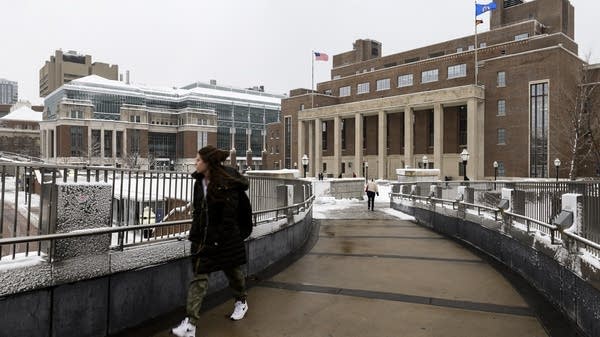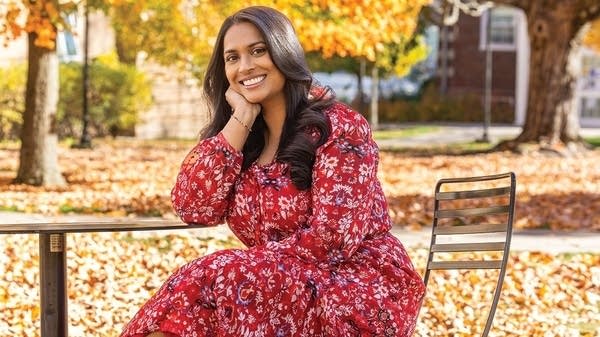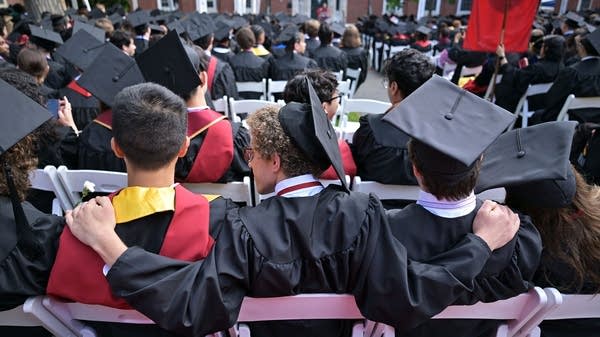Texas invests $1 billion in private school vouchers program
Public school educators fear this will drive funding out of districts throughout the state.

Houston-area educator Michelle Palmer is skeptical that receiving $10,000 in newly approved private school vouchers will help many of the students in her district, where she teaches high school social studies.
“There are very few parents in Aldine (Independent School District) that can afford private school, even with vouchers,” Palmer said. “I don't think that it will help anyone to afford a school that can't already, $10,000 is not enough for almost any private school.”
Her district, Aldine ISD, serves mostly low-income Latino and Black students north of Houston.
While some public school educators worry about vouchers driving down enrollment and funding, Palmer said her bigger concern is the state spending $1 billion on private schools, when public schools are struggling with issues like high student-teacher ratios.
“The amount of time I have to spend grading and giving good feedback and contacting parents is more because I have 150 students instead of 120 students,” she said. “The number one thing we could do for students in Texas is to lower their class sizes, and this is not going to do that.”
Palmer’s district – along with 170 others in Texas – is “severely underfunded” according to analysis by Rice University sociology professor Ruth López Turley.
She said while the Texas legislature is making big investments in private education, the state’s per-student spending on public school students or “basic allotment” is lower, increasing slightly to around $6,500.
“We're barely increasing our basic allotment for public school students, yet we're willing to provide $10,000 for use toward private schools when we don't have a whole lot of research evidence that shows that this particular strategy is effective for improving student performance,” she said.
In states with vouchers, students who benefit are often those already enrolled in private schools. And in big urban areas, private schools have limited slots and are often much more expensive than what vouchers cover.
But Mark Desjardins said it’s in smaller Texas cities – where schools have more vacancies and are more affordable – that vouchers could make a bigger difference. He runs All Saints Episcopal School in Tyler, a city in East Texas.
“We have 140 kids in our high school. So, as it relates to vouchers, we're excited because we're a school that can potentially really grow our high school,” he said.
Typically, their program sends all of its kids to college, according to Desjardins, and could take in as many as 120 new students. Tuition for the high school starts at around $19,000 and the school also offers financial aid.
“We're kind of an educational bargain for what we offer in comparison to our peers,” he said. “We have a pretty wide range of socioeconomic diversity within the school.”
In West Texas, Stephen Cox is superintendent at Trinity Christian School in Lubbock, which focuses on a Christian worldview. He doesn’t anticipate a windfall for his school, though tuition at his K-12 school is close to the $10,000 voucher amount.
“There may be some increase in enrollment,” he said.
According to Cox, many private schools in Lubbock have capacity to bring in more students and, like at Trinity, are discussing their growth potential.
Regardless of whether Cox’s school sees a big influx of students, he said vouchers should relieve the financial burden of tuition on some parents.
“Every year… we do lose families who just say, ‘You know, I got laid off. I've had unexpected health expenses’ or whatever it is, and then they have to make a decision. We would love for folks to not have to make those decisions,” he said.
Texas is also providing additional voucher money for kids with disabilities — $30,000 extra.
In the Houston area, Laura English has a 10-year-old daughter with special needs who could potentially benefit from the funding, though she’s had mixed experiences with private schools.
“People trust private schools because they hear they're good and they have a reputation, but there's no guarantee it's going to be for your kid, even when you pay the money,” English said.
Like a lot of parents, English believes private schools don’t ensure a better education. She said she’s spent at least $160,000 sending her kid to private schools but has since moved her to public school, where parents have more power to advocate for accommodations.
“My kid is challenged, but she's smart in her own ways, and she has potential to have a beautiful life still and I have to fight either way for her,” she said. “It doesn't matter if it's private or public. I'm still fighting for her.”













